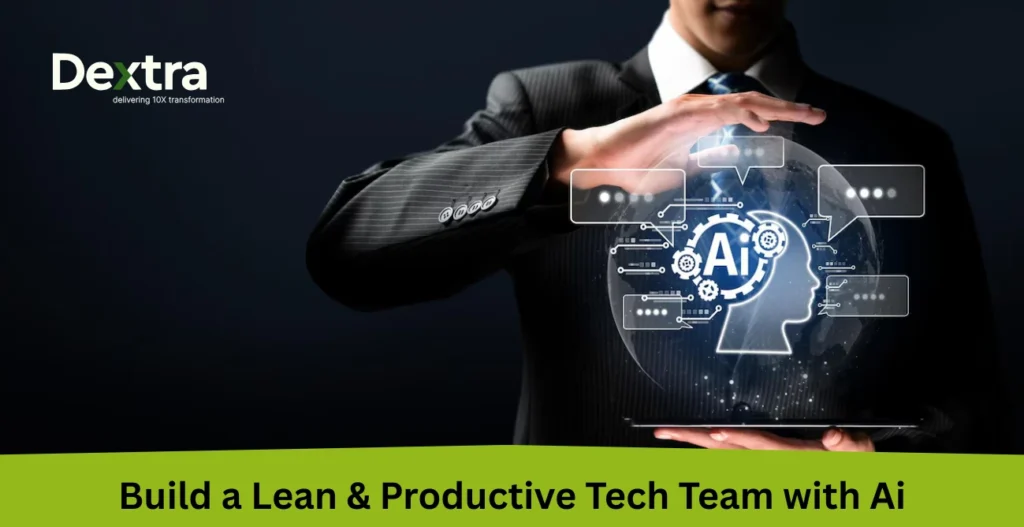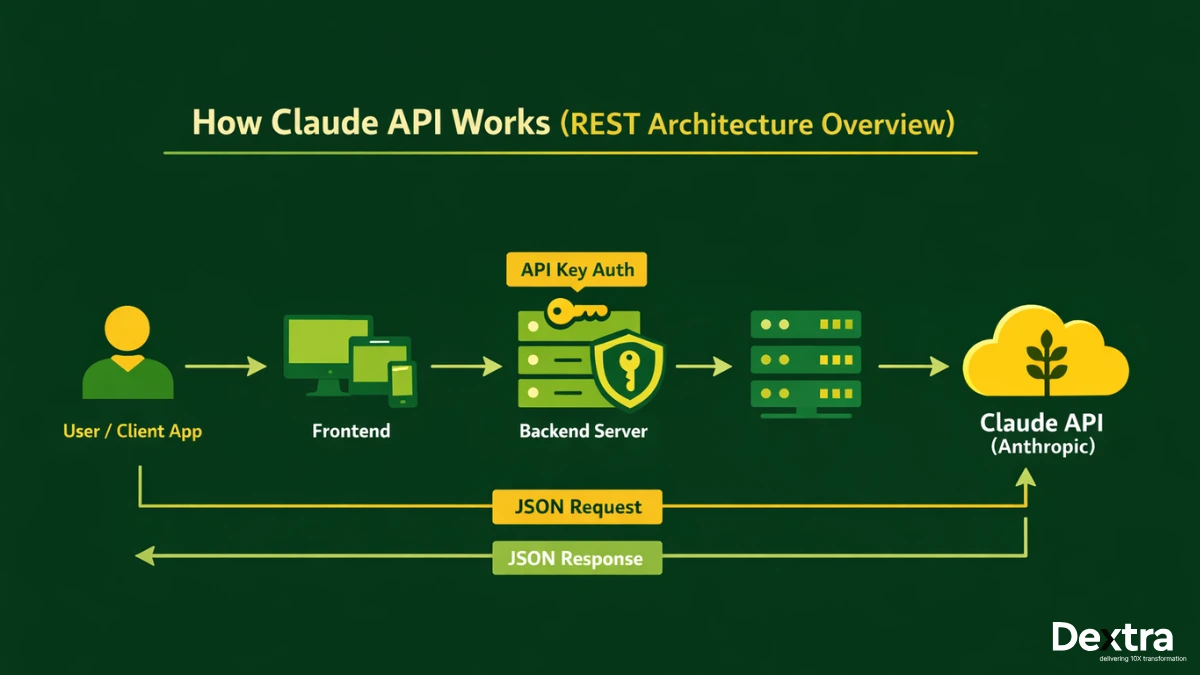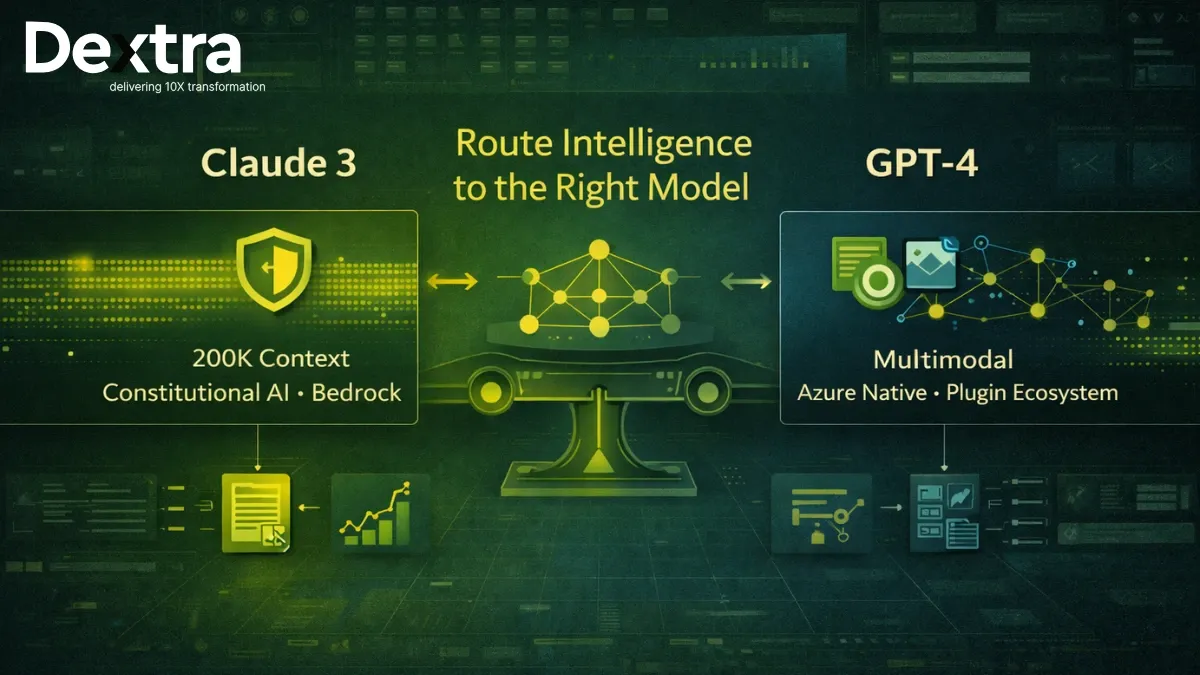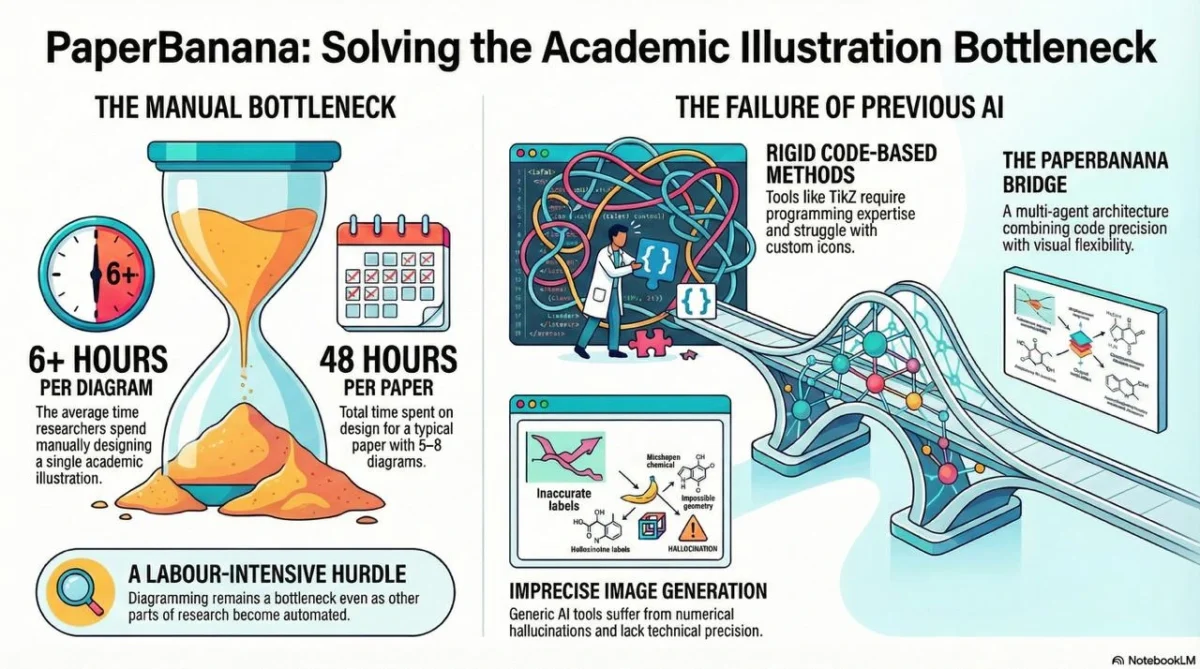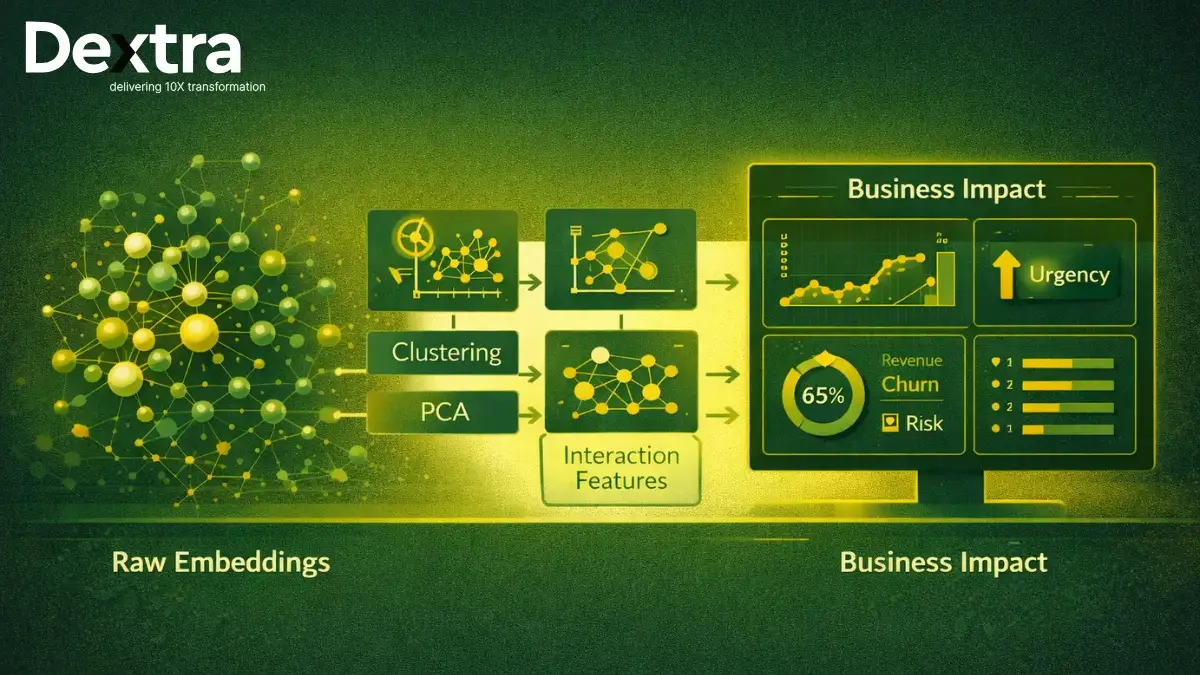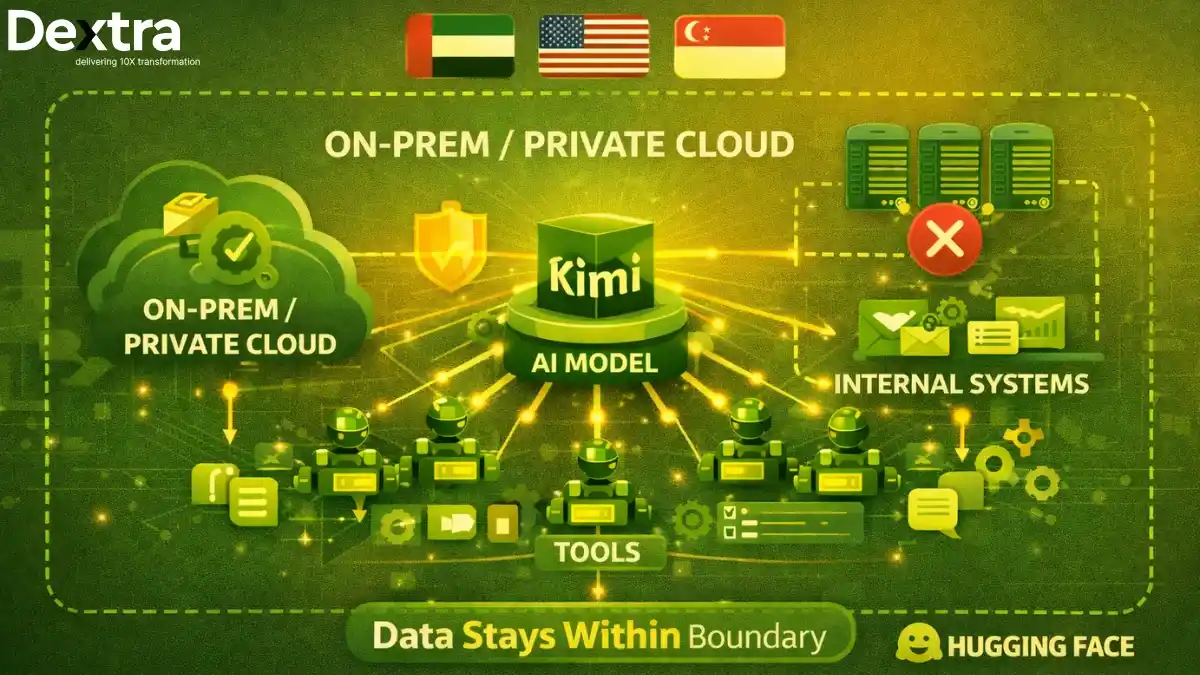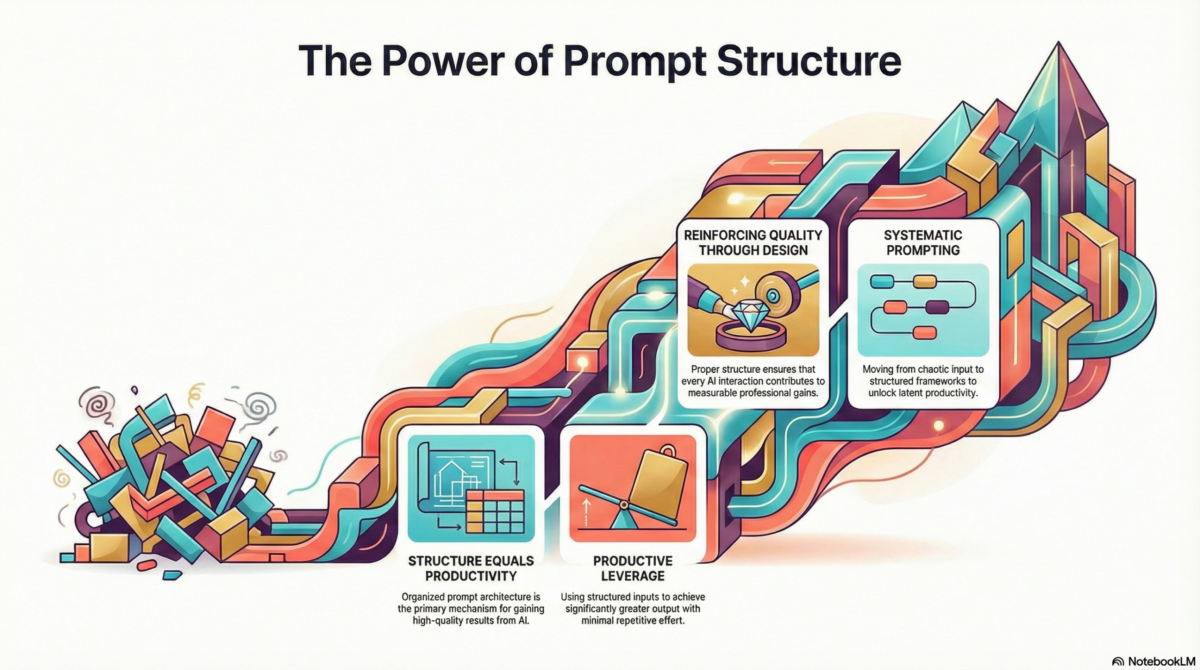Startup growth strategies are changing. Founders are moving away from large, expensive teams and embracing a lean, AI-powered model to achieve faster, smarter scaling.
Instead of hiring more engineers, companies are using Agentic AI platforms to automate development, customer service, testing, and security. High-performing AI-first companies now show extraordinary revenue-per-employee ratios, proving that efficiency, not size, creates market leaders.
For example; Cursor, an AI code editor from San Francisco, hit a jaw-dropping $300 million in annual recurring revenue (ARR) in under a year—with just 20 people on the team. Meanwhile, Swedish app builder Lovable reached $40 million in ARR in only five months, powered by a lean crew of 15.
And it’s not just happening abroad. Indian startups like Sarvam AI, Karya AI, Avaamo AI, and CoRover are also riding the same wave—small teams, big impact.
At Dextralabs, we’re proud to empower USA-based founders, CTOs, and mid-sized tech companies with AI solutions designed for real-world impact.
Don’t Hire More Engineers!
Let Dextralabs help you build a smarter, leaner, AI-first team today.
Book Your Free CallThe Rise of Lean, AI-Driven Startups
Startups are no longer chasing headcount, they’re chasing leverage. AI is helping founders scale revenue without scaling teams. Instead of growing from 10 to 100 employees, startups are growing from 10 to $100 million in revenue, thanks to automation and intelligent software.
Various Industry analysts and startup leaders increasingly highlight the growing trend of “lean by design” companies. Companies like Jasper, Copy.ai, and Windsurf are leading the charge embracing AI to operate with small teams, yet delivering massive results:
- Jasper reportedly reached $75M ARR within 18 months of launch.
- Copy.ai serves over 10 million users with fewer than 40 employees.
- Windsurf has rapidly scaled its offerings while staying agile and capital-efficient.
These companies are often referred to as “dehydrated startups” built with:
- Low operational costs, using AI instead of human labor.
- High automation of functions like customer support, content generation, and internal workflows.
- Ultra-productivity is measured not by headcount but by revenue and output per employee.
According to a 2024 SaaS BHOOMi report, AI-driven startups can reduce operational costs by up to 60% and bring products to market 30–40% faster than traditional teams. This gives lean teams a critical edge: more speed, more innovation, and fewer barriers to scale.
At Dextralabs, we help founders and CTOs turn these ideas into execution by designing and implementing AI systems that deliver results without the burden of scaling teams.
Building “Dehydrated” Companies: Low Cost, High Automation, Ultra-Productivity
The concept of a dehydrated company revolves around three core principles:
- Low Operating Costs: Startups minimize fixed costs by using AI and automation to handle roles traditionally requiring employees from administrative tasks and marketing to sales and customer service.
- High Automation: Everything that can be automated, is automated. Tools like generative AI (for content, coding, and marketing), AI-driven customer service bots, CRM automation, and even AI-based financial forecasting are becoming standard.
- Ultra-Productivity: With fewer people, there’s less communication overhead, faster decision-making, and higher individual productivity. Teams focus more on strategy and creative problem-solving, while AI handles execution and repetition.
This model allows startups to remain nimble, adapt quickly to market shifts, and significantly delay the need for large Series A or B funding rounds. They can achieve strong product-market fit, real customer traction, and even early profitability before seriously considering scaling headcount.
AI as a Force Multiplier for Founders
One of the most transformational ideas reshaping entrepreneurship today is the concept of AI as a force multiplier enabling solo founders and tiny teams to do the work that once required dozens, even hundreds, of people. At the heart of this movement is the rise of Agentic AI: systems composed of autonomous AI agents that can execute tasks across entire workflows with minimal human intervention.
Instead of simply assisting a user with single tasks, these AI agents are capable of reasoning, planning, and executing multi-step processes independently. This shift turns AI from a simple tool into a full-fledged operational partner.
What Agentic AI Can Do for Founders?
Today’s founders can leverage a range of specialized AI agents and tools that cover almost every aspect of building, shipping, and scaling a product:
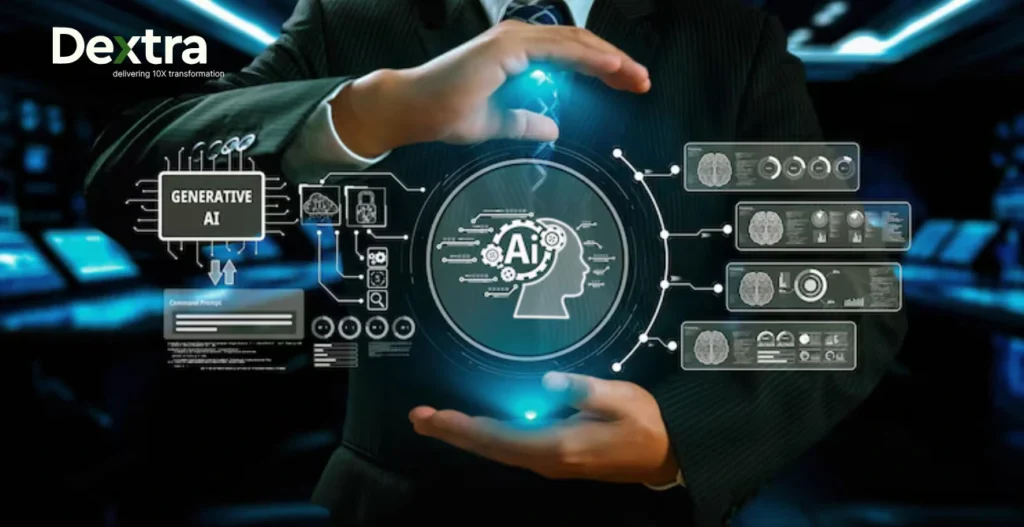
1. Code Generation & Refactoring:
AI coding assistants like GitHub Copilot, Codeium, and Devin (the AI software engineer) are already writing production-grade code. Agentic AI can:
- Autonomously generate feature code from specs.
- Refactor old codebases for efficiency and scalability.
- Write unit, integration, and end-to-end tests automatically.
2. Customer Service Automation:
AI-powered platforms like Ada, Intercom (Fin AI), and HelpScout AI can:
- Handle 90%+ of inbound customer queries.
- Auto-respond, escalate complex issues and even generate ticket analytics for CX improvements.
- Learn continuously from interactions to become smarter over time.
3. Library Upgrades & Framework/Language Migrations:
Founders often delay upgrading tech stacks due to time and risk. Now, AI can:
- Identify deprecated dependencies.
- Suggest upgrade paths.
- Perform automated migration scripts for frameworks (e.g., React 16 → 18, Django 2 → 4) with human review checkpoints.
4. Product Development & Testing:
Agentic AI now participate deeply in product development cycles:
- Product spec generation based on market research.
- Wireframe-to-code conversion with design AI (like Uizard, Locofy).
- Automated A/B testing setup and result analysis.
- Feature prioritization using user behavior analytics and predictive AI modeling.
5. AI-Driven Security Checks:
Security, often an afterthought, is being automated:
- Continuous code scanning for vulnerabilities (via AI-enhanced tools like Snyk, and Codacy AI).
- Automated penetration testing simulations.
- Real-time threat modeling and recommendations.
How a Founder Can Build, Ship, and Scale MVPs 10x Faster with AI?
Let’s break down a realistic founder journey:
| Traditional Startup Process (Human-Centric) | AI-Enhanced Startup Process |
| 2 weeks to spec features | 1 day using AI product spec generation |
| 3-4 weeks coding MVP | 3-5 days with codegen + refactoring agents |
| 2 weeks for manual QA & testing | Continuous testing by AI bots from day 1 |
| 1 month to set up customer support | 1 day deploying AI chatbot trained on docs |
| 2-3 months for V1 launch | 2-3 weeks for AI-enhanced MVP launch |
| Need 10–15 hires early | 0–3 hires until scaling phase |
One founder using an agentic Ai stack can realistically:
- Draft an idea.
- Develop a full-stack MVP.
- Launch to early adopters.
- Handle feedback loops.
- Iterate on the product.
- Scale initial support operations.
All with a lean team, almost no external dependencies, and a dramatically reduced burn.
Dextralabs – Your Partner in AI-Driven Productivity
Dextralabs is a Singapore-based SaaS consultancy specializing in AI-driven productivity solutions. Trusted by forward-thinking clients across the USA, UAE, and Singapore, we help founders and product teams unlock radical efficiencies through the power of AI. At Dextralabs, we believe that the future belongs to lean, agile companies that leverage AI not just as a tool but as a core operational partner.

What We Do as an Ai Consultant?
1. Build Agentic AI Systems:
We design and implement sophisticated Agentic AI architectures that act autonomously across workflows, helping founders and startups cut development time by 40–70%. Our systems enable smaller teams to achieve massive output without scaling traditional headcount.
2. Offer End-to-End AI Consulting:
Our AI consulting services are tailored for startups and growth-stage companies aiming to boost productivity and agility. We specialize in;
- Code migration (across languages and frameworks)
- App upgrades (modernizing existing products with AI and automation)
- Developer enablement (training and empowering tech teams to use GenAI effectively)
3. Create AI-Led Automation Pipelines:
We build custom AI-driven pipelines that automate everything from QA and deployment to customer support and analytics. The result? Product teams that can ship faster, iterate smarter, and operate at peak efficiency with minimal overhead.
Key Use Cases:
- Migrating Legacy Frameworks Using AI: Whether you’re moving from Java to Node.js, upgrading .NET stacks, or modernizing any tech stack, we use AI-assisted migration strategies to reduce time, risk, and cost.
- Educating Engineers on GenAI Best Practices: We don’t just deploy AI, we upgrade your teams on how to think, design, and code with AI. Through workshops, live coding sessions, and customized playbooks, we upskill engineers to harness generative AI in real-world development workflows.
Why Partner with Dextralabs?
- Deep expertise in Agentic AI system architecture
- Proven track record across global markets
- Focus on speed, efficiency, and scalability
- Committed to educating and empowering your teams, not just delivering solutions
Whether you’re a solo founder launching an MVP or a scaling startup modernizing your tech, Dextralabs is the strategic partner you need to build faster, ship smarter, and scale leaner.
Real Use Cases from the Field
Across industries, startups are proving that lean, AI-driven operations aren’t just possible, they’re more effective. Dextralabs has partnered with founders to dramatically cut hiring needs, reduce deployment cycles, and automate critical workflows, all without sacrificing speed or quality.
Here are real-world examples:
Case Study 1: Reducing Hiring Needs with AI
A fast-growing SaaS startup in the US needed to scale its platform but didn’t want to slow down with endless hiring loops. Using Dextralabs’ Agentic AI systems, we helped automate:
- Code generation and refactoring tasks
- Customer service ticket triage
- Regression testing and QA checks
Result:
The startup scaled product development with just 30% of the original projected team size, saving over $500K annually in hiring and operational costs.
Case Study 2: 50% Faster Deployment Cycles
A US-based product company partnered with Dextralabs to tackle slow, manual deployment cycles. We implemented AI agents that automated:
- Pre-deployment testing
- Build verification
- Rollback protocols
Result:
Deployment time was cut by 50%, enabling bi-weekly releases instead of monthly drops doubling their speed to market and increasing user satisfaction significantly.
Automated QA Workflows with Dextralabs’ Proprietary AI Framework
Quality assurance is often a bottleneck for startups. Dextralabs deployed our proprietary AI-based QA framework that:
- Auto-generated test cases
- Ran intelligent regression tests
- Flagged critical bugs with severity scores
Result:
- 60% faster QA cycles
- 30% fewer post-deployment bugs
- QA engineers shifted focus from manual testing to strategic product quality improvements.
Benefits of Building a Lean Tech Team with AI
Leveraging AI to build a lean, high-impact tech team isn’t just a tactical advantage, it’s quickly becoming a necessity in today’s hyper-competitive environment. Founders and startups that embrace AI-first operations enjoy powerful benefits across speed, cost, agility, and culture. Here’s why;
1. Speed to Market
With AI automating coding, testing, customer support, and even security checks, products move from idea to launch at unprecedented speed. A lean AI-augmented team can;
- Ship MVPs in weeks, not months.
- Run faster feedback loops with customers.
- Outpace competitors stuck in traditional development cycles.
In a world where first-mover advantage matters more than ever, speed wins.
2. Lower Burn Rate
Hiring large tech teams is expensive; salaries, benefits, overhead, and management costs quickly add up.
By automating critical workflows with AI:
- Startups can operate efficiently with 5 people instead of 25.
- Cash lasts longer, extending the runway without constant fundraising.
Resources are freed up to invest in product quality and growth, not bloated org charts.
3. Easier to Pivot or Scale
Markets shift, customer needs evolve, and product strategies often need rapid adjustments. A lean, AI-powered team can;
- Pivot product direction quickly without needing massive reorgs.
- Scale operations by adding or upgrading AI agents, not layers of management.
- Maintain optionality as a key asset in uncertain markets.
4. More Focused Culture
Smaller, high-trust teams amplified by AI tend to:
- Focus intensely on the mission and user outcomes.
- Avoid distractions like internal politics or misaligned priorities.
- Build a culture of craftsmanship, experimentation, and speed.
AI handles repetitive tasks, allowing human teams to concentrate on creativity, strategy, and high-value decision-making.
5. Founder-Led Execution Without Constant Hiring Loops
Traditionally, scaling a tech startup meant the founder quickly becoming a full-time recruiter and manager.
In a lean, AI-driven model:
- Founders stay closer to the product, users, and vision.
- Hiring becomes selective and strategic, not reactive and chaotic.
- Early team dynamics stay strong and aligned as the company grows.
Founders remain builders, not just managers preserving the original DNA that drives early-stage success.
Overcoming Common Challenges
While the benefits of AI-driven, lean teams are undeniable, responsible founders and developers must also navigate important challenges, especially around ethics, governance, and team dynamics. Adopting AI isn’t just a technical decision, it’s a leadership and cultural one, too.
Here’s how to overcome the common pitfalls:
1. Ethical and Governance Considerations of Generative AI
Generative AI is powerful, but it also introduces risks:
- Bias and fairness issues: AI systems can unintentionally reproduce harmful stereotypes if not carefully monitored.
- Data privacy concerns: Generative models trained on sensitive or proprietary data must be handled with strict data governance.
- Intellectual property risks: Questions around content ownership and model outputs are still evolving legally.
Best Practices:
- Implement clear internal AI usage policies.
- Use auditing tools to track AI decision-making where relevant.
- Regularly evaluate AI outputs for bias, hallucinations, or ethical concerns.
- Stay updated with emerging AI governance frameworks (like ISO/IEC 42001 standards).
2. Responsibility of Developers Using AI Tools
Developers are not absolved of responsibility just because an AI helped generate code, content, or architecture. They have a duty to;
- Verify and validate AI-generated outputs.
- Understand what the AI is doing, not blindly copy-paste.
- Document decisions when AI recommendations are implemented.
- Mitigate risks proactively (e.g., running additional security scans on AI-generated code).
3. Training Teams to Collaborate With AI, Not Compete With It
One of the most subtle but critical shifts required is mindset: Teams should view AI as an amplifier of human potential, not a threat.
Training Focus Areas:
- Prompt engineering: Teaching engineers how to design effective AI prompts and workflows.
- AI-assisted development practices: Integrating AI naturally into the coding, QA, and release cycle.
- Critical thinking: Emphasizing human judgment over blind AI reliance.
- Co-creation models: Structuring team processes around “human + AI” loops instead of traditional siloed work.
Teams that embrace AI as a partner will outperform those that treat it with fear or suspicion.
Final Words: Think Lean. Think AI. Think Dextralabs.
Speed, efficiency, and precision define success in today’s startup landscape. Founders who rethink traditional hiring models and embrace AI-first operations are the ones who will move faster, pivot smarter, and outbuild their competition. Lean, AI-driven teams aren’t just a trend; they represent the future of tech innovation. Instead of scaling headcount, the smartest founders are scaling capability, leveraging AI to automate workflows, accelerate product development, and maintain a laser focus on what truly matters: delivering value to users.
At Dextralabs, we are your partner in this new era. We don’t just build dashboards or bots, we create AI-powered productivity systems that help founders and product teams unlock massive leverage. Whether it’s cutting development time by up to 70%, migrating legacy frameworks using intelligent automation, or empowering engineers to collaborate seamlessly with AI, Dextralabs enables smarter, faster, leaner tech execution. If you’re ready to think differently, move faster, and build the future, think Dextralabs.
Transform Your Startup with AI
Start Building Your AI-First Team with Dextralabs Today
Get Started TodayFAQs:
Q. What makes Dextralabs different from traditional SaaS consultants?
We specialize in AI-powered productivity systems that automate key workflows, cutting dev time by up to 70%, and enabling lean, fast scaling without large teams.
Q. How can AI help my startup reduce development costs and time?
AI automates tasks like coding, testing, and customer support, enabling you to ship faster, reduce costs, and stay agile with fewer people.
Q. What is the responsibility of developers when using generative AI tools?
Developers must validate and test AI-generated outputs and ensure security. AI is a tool, not a substitute for human oversight and professional diligence.
Q. Can Dextralabs help migrate our legacy tech stack using AI?
Yes! We use AI-assisted migration to modernize legacy stacks, reducing manual work and minimizing migration risks.
Q. How does Dextralabs train engineering teams to work with AI?
We offer workshops and custom playbooks to teach engineers how to collaborate effectively with AI, from prompt engineering to AI-driven workflows.

